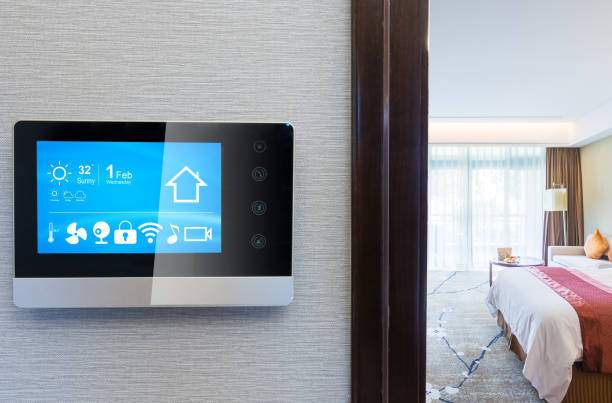Booking Master’s Inventory Management System: A Game-Changer for Hotel Operations
- 25th July 2024
- Uncategorized
In the ever-evolving landscape of the hospitality industry, technological advancements continue to reshape the way hotels operate and cater to guests. One such transformative trend gaining significant momentum is hotel automation. As hotels embrace automation solutions, they not only enhance operational efficiency but also elevate the overall guest experience. In this article, we delve into the reasons why hotel automation is heralded as the next big thing.
Efficiency Redefined: Streamlining Operations with Automation
- Check-In and Check-Out Automation: Automating the check-in and check-out processes minimizes wait times, allowing guests to enjoy a seamless arrival and departure experience. Mobile check-ins and keyless entry systems reduce queues at the front desk, freeing up staff to focus on personalized guest interactions.
- Housekeeping Automation: Automation in housekeeping operations optimizes room cleaning schedules, tracks inventory of cleaning supplies, and ensures timely maintenance. This not only improves room turnaround times but also contributes to a consistently high standard of cleanliness.
- Inventory and Supply Chain Management: Implementing automation in inventory and supply chain management prevents overstocking or stockouts, reducing costs and minimizing wastage. Smart systems can track usage patterns, automatically reorder supplies, and streamline the procurement process.
Enhanced Guest Experience: A Personalized Touch
- Smart Room Controls: Automation transforms hotel rooms into intelligent spaces. Guests can control room lighting, temperature, and entertainment systems with the touch of a button or a voice command, providing a personalized and comfortable stay.
- Personalized Services: Automated guest profiling enables hotels to anticipate guest preferences and deliver personalized services. From recommending dining options based on past choices to offering custom room settings, hotels can create memorable and tailored experiences.
- Effortless Concierge Services: Automated concierge services, accessible through mobile apps or in-room tablets, provide guests with instant recommendations for local attractions, dining, and activities. This enhances the overall guest experience by offering convenience and real-time information.
Cost Savings and Resource Optimization
- Energy Efficiency: Automated systems contribute to energy conservation by regulating room temperatures, controlling lighting, and managing other electrical devices. This not only reduces utility costs but also aligns with sustainability goals, making hotels more environmentally friendly.
- Staff Optimization: Automation allows hotel staff to focus on high-touch guest interactions, leading to improved guest satisfaction. Tasks that are repetitive or time-consuming, such as manual data entry, can be automated, freeing up staff for more strategic responsibilities.
Security and Guest Safety
- Smart Security Systems: Automation extends to enhancing hotel security through smart surveillance systems, access controls, and monitoring technologies. These systems not only provide a secure environment for guests but also enable real-time incident response.
- Contactless Solutions: In the wake of global health concerns, contactless solutions have gained prominence. Automated check-ins, digital keycards, and touchless payment options contribute to a safer and more hygienic guest experience.
Competitive Edge and Innovation
- Guest Tech Expectations: Modern travelers increasingly expect tech-forward amenities. Hotels investing in automation align themselves with the expectations of tech-savvy guests, gaining a competitive edge in the market.
- Innovation Hub: Embracing automation positions hotels as innovators in the industry. It not only attracts tech-oriented guests but also serves as a showcase of a hotel’s commitment to providing cutting-edge services.
Adaptability to Industry Trends
- Integration with Emerging Technologies: Hotel automation seamlessly integrates with emerging technologies such as artificial intelligence (AI), internet of things (IoT), and data analytics. This adaptability ensures that hotels stay ahead of the curve as technology continues to evolve.
- Pandemic Preparedness: The flexibility of automated systems allows hotels to quickly adapt to changing circumstances, as witnessed during the COVID-19 pandemic. Automated processes minimize physical touchpoints, supporting health and safety measures.
Embracing the Future Today
In conclusion, hotel automation represents more than just a trend; it is a fundamental shift towards a future where technology plays a central role in delivering exceptional guest experiences and optimizing hotel operations. As hotels navigate the evolving landscape, embracing automation is not just a choice but a strategic imperative to stay competitive, innovative, and responsive to the evolving needs of guests and the industry. The journey toward becoming a smart hotel is not just about technology; it’s about shaping the future of hospitality.
